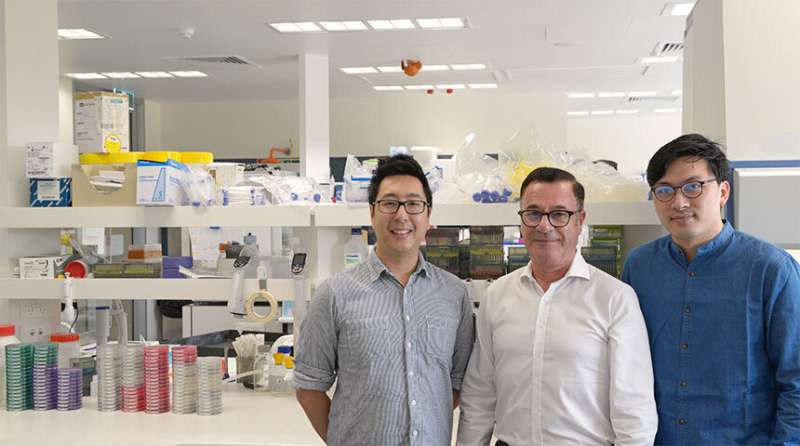Credit: Murdoch University
New research is helping to detect early warning signs of drug-resistant bacteria to prevent antibiotic resistance.
Since the 1940s, antibiotics have saved millions of lives. Long considered saviours in modern health, antibiotics improve patient safety in many lifesaving medical procedures including organ transplantation, chemotherapy and caesarean sections.
However, best practice antibiotic use is now under scrutiny and the rise of 'superbugs' poses a significant threat to public health.
As antibiotic resistance continues to develop worldwide, Australia is at the forefront of needing to address the challenge as the eighth highest user of antibiotics globally. The more we use antibiotics, the more chance bacteria can develop a resistance to them.
Murdoch Professor Geoffrey Coombs is leading research to detect early warning signs for potential outbreaks of drug-resistant bacteria to inform better infection control procedures in hospitals.
This research is part of the Australian Group on Antimicrobial Resistance (AGAR)'s strategy on controlling antimicrobial resistance (AMR) in collaboration with the World Health Organisation.
"In Australia, we've discovered approximately 50% of the enterococci, a bacterium that causes blood stream infections, has developed a resistance to vancomycin," said Professor Coombs.
"Vancomycin is often used as a last-resort antibiotic used to treat drug-resistant infections in clinical settings. So this is a major concern for our hospitals that provide tertiary care in the form of transplants, trauma surgery and chemotherapy to immunocompromised patients."
Professor Coombs and his team used a genome sequencing approach to classify the infectious bacteria into three groups.
"We were able to characterise each group by the presence (or lack) of the gene type causing the vancomycin resistance," said Professor Coombs.
"Hospitals can now use our data to regularly monitor the occurrence of drug-resistant enterococci to prevent potential outbreaks."
The cause of antimicrobial resistance is largely debated, but Professor Coombs says it's a multitude of factors from over prescribing to under prescribing antibiotics that contribute to this global threat.
"The truth is bacteria will inevitably evolve over time, modifying their genomic structure so they become resistant. And a lot of these resistant genes occur naturally in our environment.
"However, if we continue to over and under prescribe or prescribe the wrong antibiotics, it's going to create antimicrobial resistance."
Professor Coombs, who is the current Chair of AGAR, works closely with One Health experts at Murdoch in developing a holistic approach to managing infectious diseases affecting the health of humans, animals and the environment.
"Murdoch plays a massive role in our national antimicrobial resistance surveillance programs. We have two of the largest program labs at the Perth campus, where we can monitor the population of resistant bacteria—helping to identify communities where AMR is occurring.
"This data then feeds into federal government guidelines on prescribing antibiotics in hospitals, aged care homes and veterinaries."
While we can collect all the data in the world, Professor Coombs says there is still a lot of work to be done educating the public on antibiotic use.
The latest AGAR report showed more than half of the antimicrobial prescriptions for aged care patients were prescribed to those who had no signs or symptoms of a bacterial infection.
"Patients will walk in asking for an antibiotic for a cold. But, antibiotics don't work against viruses. So, there's no point in prescribing one.
"Public health is everybody's responsibility."
Provided by Murdoch University
























